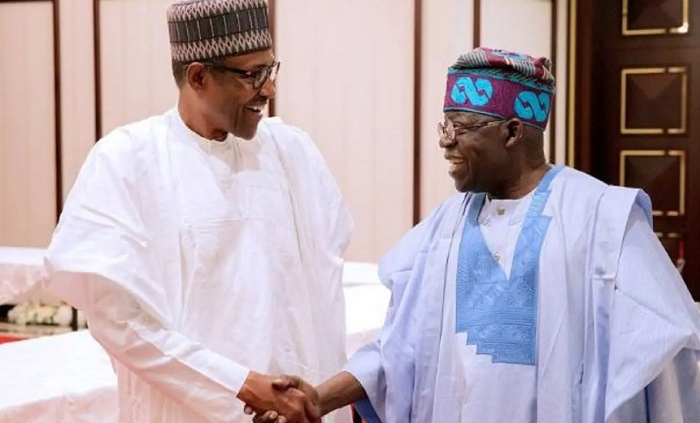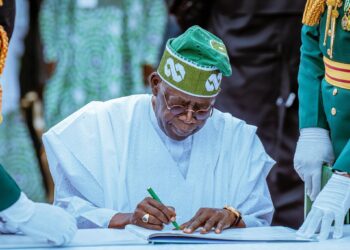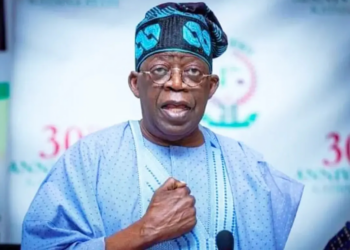Key Highlights
- The author’s argument that a Tinubu presidency would be similar to a Buhari presidency is flawed as both leaders have different competencies and approaches to governance. The Tinubu administration plans to leverage some of Buhari’s achievements, such as implementing the Petroleum Industry Act and improving the Nigeria-Siemens deal, but will also drive revenue through plans such as phasing out tax waivers, widening the tax net, unifying the FX window, implementing the Critical Infrastructure Plan, and ending fuel subsidies.
- Governments around the world have had to turn to their central banks for intervention during crises such as the pandemic, and while excessive printing of currency is not ideal, it is not unprecedented or necessarily unjustified.
- Lagos budgets are typically funded more by revenue than borrowing, and Tinubu has a strong record on tax generation and compliance.
Elections are over but governance continues. While people still debate politics, it is important people also move on and focus on policies. Because policies are essential for the growth of Nigeria while the evanescence of politics makes the discourse futile.
Earlier in January, a respected author wrote an article titled “A Tinubu presidency is a Buhari presidency”.
The author’s hypothesis centered on the approach the incoming government would adopt in intervening in the economy. The author believes it would be the same as how Buhari’s government operated in the last 8 years.
Although the ruling party, APC hosts the current and incoming administration, both leaders would adopt different approaches to how Nigeria would be run. We must understand that Tinubu and Buhari are two different men with varying competencies.
Tinubu served as a technocrat for many years before his foray into politics, and has a more progressive and open global-view. Buhari on the other hand spent decades in the military and his past 8 years has shown he has a tougher internal view on a lot of things. Border closure, build infrastructure, end corruption – his stance on certain issues gives a “let us fix ourselves rhetoric”. His self-appointment as Minister of Petroleum was from an angle of “protecting the sacrosanctity of that position” rather than doing the executive work of overseeing the full implementation of the PIA.
Notwithstanding, the Tinubu administration would leverage on some of Buhari’s achievements by implementing the PIA (Petroleum Industry Act), and build on the foundation of Buhari’s Presidential Power Initiative by improving the Nigeria-Siemens deal. Both plans will bring respite to the Oil and Power sector respectively. That is the continuum of government that the author failed to highlight.
What the author eventually highlighted, focused on the way Tinubu will fund Nigeria’s budget. The first counter to that claim is that the Buhari administration adopted Ways and Means as a last resort as they battled oil crashes and recessions induced by a global pandemic. Globally, all nations ran to their Central Banks for support.
80% of all US dollars in existence were printed in 22 months (from $4 trillion in January 2020 to $20 trillion in October 2021. Additionally, for the last 13 years, the Bank of England has printed close to £1 trillion aimed to stabilize the economy during the financial crisis and the pandemic.
Albeit, this is not a justification for exorbitant printing but a narrative that mirrors the dire conditions Governments faced that saw them running to their Central Bank for intervention.
Secondly, the author perhaps ignored or is unaware of the plans of the Tinubu administration to drive revenue. Which he has communicated in various sessions presented to Business leaders at Town Halls. One in particular in Lagos where he showcased some of his potential policymakers. Mr. Wale Edun, Former Commissioner of Finance, Lagos State, highlighted some of their plans to grow Nigeria’s purse which I would break down here;
a) Firstly, there are plans to phase out some tax waivers. Reducing these tax incentives, which is equivalent to foregone revenue would support Nigeria’s fiscal space. It is also based on statistics, to gradually transition away from expensive and redundant tax incentives to incentives that are rewarding performance.
In addition to that, there are plans to widen the tax net, as the current administration improved tax generation which saw non-oil revenue outpace oil revenue for the first time since 1973. It is projected that these tax reforms would bring over 5 trillion naira for the government.
When it comes to tax generation and tax compliance, no one holds that mantle as high as Tinubu in Nigeria, so it’s a bit disingenuous for the author to say “even if you say you have not read the manifesto, the way Lagos has been run for over two decades is visible for all to see” if he is being consistent with funding budgets.
Lagos budgets’ are funded more by revenue than borrowing. Tinubu did not rely on borrowing to fix the problem of withheld funds from the FG while he was governor.
Secondly, There are plans to unify the FX window within a year as the Tinubu administration believes the current system stifles an environment for foreign direct investment. Doing this would free up trillions of naira for the government coffers which is the opportunity cost of forgone FDI and the cost of defending the Naira that comes with the current system.
The Tinubu economic plan believes that to ensure exchange rate policy harmonizes with their goals of optimal growth and job creation driven by industrial, agricultural, and infrastructural expansion, they will “work with” the Central Bank and the financial sector to carefully review and better optimize the exchange rate regime. The phrase “Work with” sounds more collaborative than the compulsive tone the author alluded to in his piece.
Thirdly, The Tinubu-Shetimma administration plans to end oil theft by implementing the CIP (Critical Infrastructure Plan). Last year, Mele Kyari, group chief executive officer (GCEO), NNPC Limited, said Nigeria lost $1.9 billion monthly to crude oil theft”. If this is salvaged, we are looking at a potential 5/6 trillion naira revenue for the government.
Lastly, ending fuel subsidies. The President-elect has reiterated his determination to put an end to oil subsidies which have gazumped Nigeria’s purse. In 2022, the FG spent $10 billion for fuel subsidies, and this year they budgeted $7.5 billion for fuel subsidies. Fellow Oil producers, Saudi Arabia made $326 billion in oil revenues in 2022. Revenue forgone for crude-fuel swaps or under-recoveries has affected Nigeria’s fiscal performance. Removal of subsidies will save the government over 5 trillion naira.
So can the author see how these plans would free up close to 20 trillion naira which is higher than the 2022 budget of 17.12 trillion naira without any borrowing in sight?
Understandably, how and the timeline the plans would be executed is a different kettle of fish but alluding to only printing as the primary source of budget funding is not only cherry-picking but painting a picture without a brush, canvas, and a subject in sight.
Notably, the Tinubu administration per their manifesto has spoken about avoiding foreign debts and their plans for domestic borrowing that would try not to exacerbate inflation and would be linked to assets that would make repayments easier.
Conclusively, this is not a rebuttal, but an opportunity to bring more awareness to the incoming government’s plans. As we welcome a new administration, writers such as Feyi Fawehinmi who have contributed immensely to the public policy space should not relent in constructively criticizing and engaging the government as this helps for accountability and serves as reminders for policymakers to execute their plans.






















This rosy and overly-optimistic piece unfortunately falls short on several points, but I will confine myself to the following 3 basic points.
First, removal of tax incentives (including tax holidays) in a nation with such an enormously difficult investment terrain as Nigeria is likely to result in a decrease in investment that would likely be far greater than any increase in tax revenue. It would be a real “penny-wise, pound-foolish” policy.
Second, Nigeria should really get away from these “government initiatives” in business, and instead resort to the market to drive growth. Accordingly, instead of the so-called “Presidential Power Initiative” (aka Siemens Deal), the government should FULLY deregulate the sector (including transmission and tariffs) and let the marketplace (including competition) drive sectoral expansion and growth.
Finally, the reference to Saudi Arabia is confusing and probably misplaced. While the Saudis have reduced (not completely eliminated btw) fuel subsidies, their subsidy regime is substantively different from Nigeria’s, as they do not import products and therefore their subsidy regime is not the drain of foreign reserves that Nigeria’s regime is. Furthermore, Nigeria’s oil revenues will never approach Saudi Arabia’s (which produces over 10 times as much crude as Nigeria) regardless of subsidies (which Nigeria should’ve eliminated decades ago).
Different not necessarily better (or worse, to be fair). and NOT ALL CHANGE IS PROGRESS. My prediction is that a Tinubu administration (if it comes to fruition, that is) might be marginally better on a few fronts, worse on several fronts, and more likely the same or similar in an overwhelming number of fronts, as Mr. Tinubu has proven more adept at NIGERIAN POLITICS (emphasis, as it is a peculiarly mercantile brand) than as a “technocrat”. Best wishes to us all.